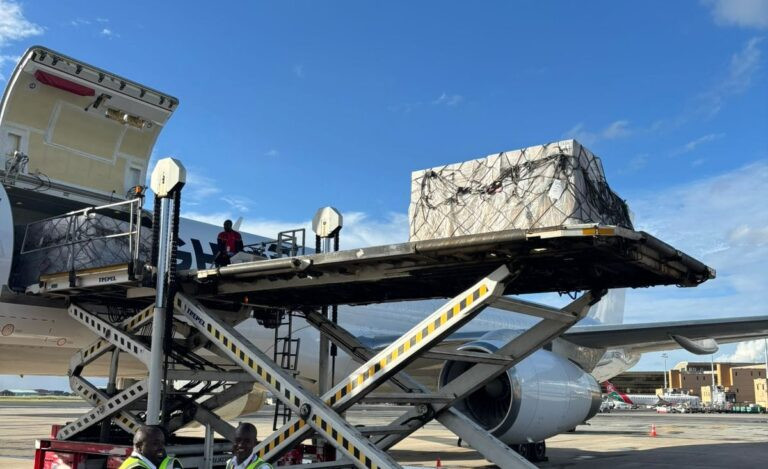Aero Speed Xpress (“ASX”) is breaking new ground by creating direct trade lanes, expanding airline partnerships, and embedding local expertise in key growth markets — all rooted in a shared passion for aviation.
When asked why ASX is focused on markets like India, Kenya, and the UAE, the answer is layered, blending professional insight with personal history. “Why these regions? Well, it’s both personal and professional,” explained Pradeep Menon, Managing Director and Co-Founder of ASX. “Lionel Smith, ASX Director and Co-founder was born in India, started his entrepreneurial journey in Kenya, and later moved to the UAE to set up his charter business operating flights to Iraq, Afghanistan, and beyond. I was also born in India and built my career in the UAE, focused for the most part on building air cargo routes and trade lanes to Africa from the Far East, Middle East, and India.”
This terrain familiarity has become ASX’s competitive advantage, especially in untapped corridors between Asia and Africa. “We find huge yet unexplored opportunities between India, Africa, and the UAE. India is one of Africa’s biggest suppliers of affordable and quality medicines, besides commodities such as machinery, automotive equipment, textiles, etc. The UAE…is Kenya’s newest yet fastest-growing market for flowers, vegetables, fruits, and meat,” Menon said.
A notable differentiator is ASX’s relationship with TAAG Angola Airlines. “We feed loads from India and the UAE into NBO, connecting to the TAAG freighter NBO–LAD and further into their network.”
Strategic control and operational depth
While GSSA services are often viewed as commoditised, ASX challenges that notion by taking direct control over capacity on strategic routes. “We have invested in adding our own controlled capacity on critical routes—specifically from India to Africa, and from Africa to the UAE and Central Asia,” Menon shared. “We will continue to invest and build new routes that currently do not exist; these are still in the pipeline and too early to discuss.”
Beyond controlled lift, the ASX team’s operational DNA drives how it engages with partners. “All our commercial team members come with a strong operational background. Selling capacity without understanding operational aspects—e.g. ULD weight and trim, loadability of off-size cargo, DG regulations and handling, etc.—can have disastrous consequences,” Menon explained.
“Our commercial teams are fully aligned with our operational teams at all times. It does not work otherwise.”
This alignment has real-world impact. “I’m sure you’ve heard about the ongoing capacity shortage in Kenya and how it’s threatening the livelihoods of flower and vegetable growers there,” he said. “We decided to step in with our own controlled flight operation—a weekly chartered B757 freighter flying from BOM to NBO with pharma loads, and backhauling to DWC and onward to FRU with vegetables, flowers, and herbs. This initiative opened up an entirely new trade route, benefiting both growers and the forwarding community at large.”
Local expertise, global standards
Operating in culturally and logistically complex regions requires more than strategy — it demands on-the-ground insight. “All our staff are locally hired; they bring with them tons of experience and local knowledge,” said Menon.
That local-first approach dovetails with ASX’s commitment to supporting green logistics and regulatory compliance — increasingly non-negotiable elements in today’s air cargo world.
“Sustainability is becoming a bigger part of the conversation, and rightly so. At ASX, we stay on top of changing regulations and ensure our partners—both airlines and forwarders—are aware and prepared,” Menon said. “We focus on optimising loads, minimising empty legs, and consolidating cargo where possible to reduce overall emissions. We also prefer to work with carriers that are serious about fleet efficiency and environmental standards.”
“It’s not just about compliance—it’s about building smarter, more responsible supply chains.”





